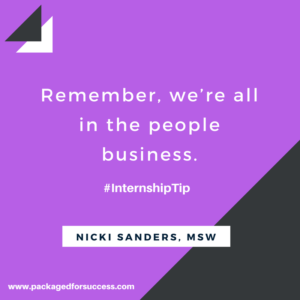What Anxiety Does to Us at Work
By Alice Boyes
I have an anxiety-prone brain. When presented with a new idea, my first instinct is usually to think of what could go wrong and the worst-case scenario. Whenever communication is ambiguous, the first conclusion I jump to is a negative one.
If you share these tendencies, you won’t necessarily be able to change them, and nor do you need to; they’re probably your hard-wired defaults, and they can yield positive outcomes, such as diligence and sensitivity to others. However, you can learn to recognize when you’re seeing through anxiety-tinted glasses and adjust your thinking so it doesn’t limit you. Here are some common ways anxiety can cause problems at work and suggestions for ways to minimize them.
You misjudge the view others have of you.
Anxious folks tend to worry that others dislike them or don’t see them as talented. For instance, let’s say a coworker doesn’t greet you as warmly as they do others and always seems rushed in your interactions. You assume the person doesn’t like you. But realistically, there are other possibilities: perhaps they’re warmer with people they know better or their only way of socializing is to joke around and you give off a serious vibe. Because you don’t feel liked, you avoid that colleague, but then they might feel snubbed and jump to the conclusion you don’t like them!
Instead, it’s important to recognize when you’re interpreting an interpersonal situation without solid evidence. Equally, if not more important, is to understand that even if your colleague isn’t into you (professionally-speaking) you can still have a fruitful relationship.
You’re defensive about feedback.
Anxious people are often driven to succeed, so they want feedback that helps them improve, but they tend to catastrophize it and see it as an indicator they’re doomed to fail. If this sounds like you, get clear about what makes it easier for you to be open to criticism. For me, this includes getting it from someone whose advice I trust and who believes in my general competency/talent, having it sandwiched between positive comments, and receiving it via email (so I can digest it slowly) and when I ask for or expect it (to feel more in control).
The flipside of knowing how you like to get feedback is recognizing how you don’t and figuring out a way to get more comfortable in those scenarios. For instance, I find it hard to take critiques from new people but I also find fresh perspectives very valuable, so I’m willing to tolerate the anxiety of it. It’s also useful to have some canned responses for when feedback has caused your anxiety to spike and you need time to modulate your reaction — for instance: “Those are good points. Let me go away and think them through and come up with a game plan for how to implement your suggestions.”
You avoid situations then get perceived as difficult.
We tend to avoid the things we’re anxious about and then feel ashamed about the avoidance, which causes us to be unclear in our communication. This problem can manifest itself in big and small ways. Maybe you feel awkward about responding to an email so procrastinate on it, which leaves the impression that you’re unreliable, disorganized, or confusing. Or maybe your clinical-level fear of flying is making you turn down work trips.
In many cases it’s best to be honest about what’s causing your hesitation. You won’t always receive the understanding you hope for but transparency reduces everyone’s stress, enhances trust, and is often perceived as brave and authentic.
You react negatively when presented with unexpected ideas.
If your first thought when presented with new ideas is to consider the risks, downsides, and reasons they won’t work, other people are probably picking up on your instinct and, worse, may perceive it as unwelcome negativity. Even if it’s only your initial reaction, it can be demoralizing and annoying for others who do see a way to move forward.
If you’re one of these naysayers, I recommend training yourself to give sandwich feedback. Make sure that your first response to a new idea is to note what’s good about it. Doing this will help your brain improve at balanced thinking and benefit you overall. You can then mention your worries, but end on a positive note. Another strategy is to delay reacting, even by only a few hours, so that when you do respond, you’re giving a considered response.
Anxiety can motivate people in very positive ways: for example, fear of rejection can make you work harder at and deeply value relationships, and being sensitive, cautious, and careful can enhance your performance on difficult tasks. The better you understand how your anxiety works, the more you can maximize these positive aspects and minimize the negative so you’re more accepting of yourself and better able to handle challenges that arise at work.
Article originally published on Harvard Business Review.
